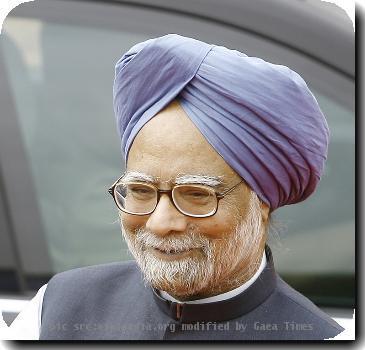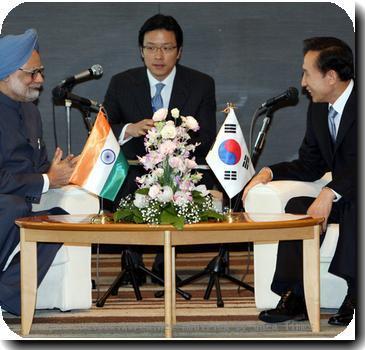Canada is India’s ninth civil nuclear energy partner (Lead)
By Arvind Padmanabhan, IANSMonday, June 28, 2010
TORONTO - India’s relations with Canada Sunday changed from one of suspicion and unease to a strategic partnership after they forged a civil atomic energy pact which Prime Minister Manmohan Singh described as breaking new ground.
Canada, which had led India’s nuclear isolation in the mid-1970s and late 1990s, is now the ninth nation with which New Delhi has a peacetime atomic energy pact, opening the doors for bilateral nuclear commerce on the lines India has with the US.
The pact, paving the way for Canadian firms to take part in India’s $40 billion nuclear energy business over the next 10 years, was inked after a meeting between Indian Prime Minister Manmohan Singh and his Canadian counterpart Stephen Harper.
“The civil nuclear agreement that we have signed breaks new ground in the history of our cooperation in this sector,” Manmohan Singh told reporters at a joint press conference with Harper.
“It reflects the change in international realities and will open new doors for mutually beneficial cooperation in nuclear energy,” he said, alluding to how the global community now looks at India compared with when New Delhi conducted its nuclear tests in 1998.
Thus far, India had civil atomic energy pacts with eighth countries, led by the US, which had kicked off the process to resume the global engagement with India in nuclear commerce.
The other countries are France, Russia, Mongolia, Kazakhstan, Argentina, Namibia and Britain.
According to data available with atomic energy department, India currently has 19 nuclear reactors at six locations, all operated by the state-run Nuclear Power Corp of India, with a capacity to produce 4,560 MW of electricity.
The plan is to quadruple this capacity to 21,180 MW by 2020, taking the share of nuclear energy in India’s total installed electricity-generation capacity of around 150,000 MW, from around 3 percent to a little over 10 percent.
While Canadian firms, like those in other countries, cannot yet produce nuclear energy in India that has been reserved for state-run firms by law, they can supply equipment and components - which, in itself, is a big business, officials said.
Four out of India’s 129 reactors are at Tarapur in Maharashtra with a capacity of 1,400 MW. Six are at Rawatbhata in Rajasthan with 1,180 MW, three at Kaiga in Karnataka with 660 MW and two each at Naroda in Uttar Pradesh, Kakrapar in Gujarat and Kalpakkam in Tamil Nadu, with 1,320 MW.
These apart, six new reactors are also under construction, some at advanced stages, with a capacity of 2,720 MW. These are two at Kudankulam in Tamil Nadu with 2,000 MW, one at Kalpakkam with 500 MW and one at Kaiga with 220 MW.

